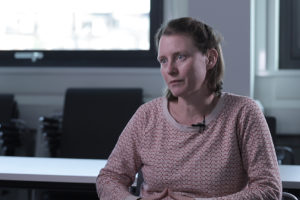Science Communication in Ancient Greece
Historian and Philosopher of Science Liba Taub on Aristotle, the cattle problem, and art as a means of science...
The topic of musical perception in Williams syndrome aroused huge interest. I think it’s really sparked the public imagination to see this group of individuals with this very rare disorder engaging in music in a way that is really quite extraordinary. Williams syndrome is a genetic disorder, and it affects development in multiple ways. If we think about what we know from experimental studies of Williams syndrome and studies using sorts of standardised assessments, we can see that they have quite extreme patterns of strengths and difficulties.
There have been lots of early studies that have looked at musicality, and it’s certainly been claimed that musicality is an area of strength as well. There’s been quite a lot of research, quite a lot of early work was anecdotal, and we also saw quite a lot of individual case studies that made it very difficult to generalise to the broader population of people with Williams syndrome. One thing that made us worry about a lot of the early research into Williams syndrome was that it was carried out in summer music camps in America, which meant that we saw very, very good skills in these individuals with this disorder in music, but it wasn’t a random sample of people with Williams syndrome: these were people who were choosing to spend their summer making music. They’re people who have parental support to arrive at a summer music camp. So what we saw really was the musical performance of people who would probably have a lot of musical enrichment, and if we think about that kind of data compared with data into other neurodevelopmental disorders, for example, studies of autism where the children have been selected more randomly, then this introduces confounding variable.
A second problem really was that we had lots of data based on parental reports rather than natural empirical data. We’ve had an excellent review from researchers in America who have looked at pitch and rhythm information processing, and we found that the skills are really quite preserved relative to the children’s intellectual ability. Again, we do see a definite relative strength in these kinds of skills in children with Williams syndrome.
Something else that I found really quite remarkable was the extent of individual differences within these groups. Some children really are performing as well as children without any intellectual impairment, so we see some children where we’ve got absolute strength in music. But at the group level, we have to say that their skills are relatively preserved.
One thing that we need to be really aware of is that if we look at the studies of Williams syndrome where the children are being asked to recognise emotions on their faces, they often have problems recognising negative emotions. So they’re very good at recognising happy faces, but if we ask them to tell us whether somebody’s face is angry or sad, they do much less well at that. When we look at that same kind of profile within music, we see the same pattern, so children with Williams syndrome are very good at recognising happy emotions; they have a lot more problems recognising negative emotions within music compared to typically developing children.
In some recent studies that have been carried out in my lab in collaboration with Deborah Riby, who’s based in Durham, we collected data from children with Williams syndrome who were randomly recruited. None of these children had ever been to a summer music camp, and the amount of musical input they were getting was the same as the typically developing children. So, we were able to have a look at musical skills in children with Williams syndrome who have not had a musically enriched environment. Our results were very highly consistent with the work that’s been reviewed, showing that these skills are their relative strengths, that they are doing very well and that they’re performing as well as you would expect with their level of intellectual ability. This suggests that the work that’s been reviewed so far hasn’t been badly affected by the kind of recruitment procedures that have been carried out.
We also found extraordinary individual differences in our sample in that some of the children were doing as well as children who had no intellectual impairment at all. At the group level, we found that they were finding it very, very difficult to understand negative emotions, so they didn’t understand angry music, they didn’t understand fearful music, but they were really good at happy.
I think the final thing to consider in terms of Williams syndrome and research is the idea of musical affinity.
Several people researching in Williams syndrome have mentioned this affinity that people with Williams syndrome feel for music: they love to engage with music, they will spend a lot of their free time doing music, and when they do music, they’re very very happy.
So we can see that if we look more broadly at musical skills in Williams syndrome, we have to conclude that this is the really extraordinary feature of their musical profile. Reviewers and many researchers who work in this area would concur that it is this emotional engagement with music that is so extraordinary in Williams syndrome.
I think we need to see more and more ways of developing the use of music with this group. I think an interesting idea would be to start thinking about whether or not we could help spatial awareness and whether we could help grammatical skills by using those more structured aspects of music to extend aspects of memory and information processing in this group. Certainly, we can attempt to use music to get more fine-grained emotion recognition in this group. But I think that given this special affinity for music, music is a perfect vehicle to use in a therapeutic sense with this group.

Historian and Philosopher of Science Liba Taub on Aristotle, the cattle problem, and art as a means of science...

Psychologist Lauren Stewart on congenital amusia, earworms and how music affects mental and physical health

Developmental psychologist Uta Frith on the detection of dyslexia in children, difficulties with sound recogni...